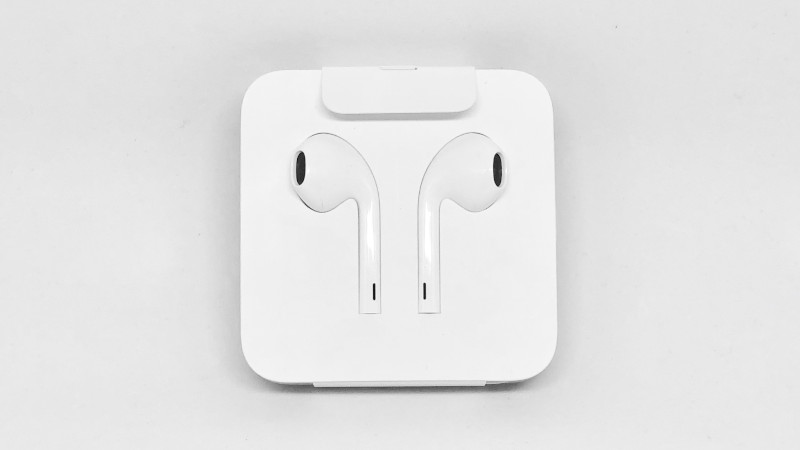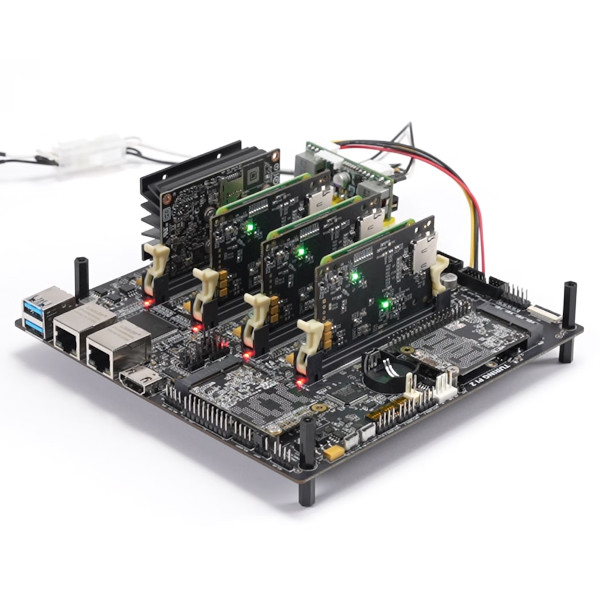When the entry of a tech giant such as Apple into a market represents its liberation from exploitation, that market must be really broken, yet the reported FDA approval of the hearing aid feature in the latest AirPod earbuds seems to represent just that. The digital hearing aid business is notorious for its sharp sales practices and eye-watering prices, so for all Apple’s own notoriety the news might actually represent a leap forward for consumers in that sector. We have to ask though, if Apple of all people are now the Good Guys, where has the world of electronics gone so badly wrong?
Your grandparents decades ago would have had a simple analogue hearing aid if they had one, usually a small transistor circuit and perhaps with some kind of analogue filtering. Digital aids with DSP algorithms to pick out speech arrived some time in the 1990s, and from there evolved a market in which their high prices increasingly didn’t match the cost of the technology or software involved. At least in the UK, they were sold aggressively to older people as less cumbersome or better than the National Health Service aids, and if you had an older person in the family it was routine to see pages and pages of targeted junk mail offering dubious financial schemes to pay for them.
The question then, given that a modern hearing aid has a relatively cheap microcontroller and DSP at its heart, why has the open source community not risen to the challenge? The answer is that they have, though the Tympan seems an over-expensive trinket for what it is and the LoCHAid and Open Speech Platform seem to have sunk without trace. Can we do better?
Header: Gregory Varnum, CC BY-SA 4.0 .

















I didn’t realize the hearing aid industry was so scummy. Challenge accepted!
Almost every medical device company is unbelievably revolting
when they issued my mom her wheel chair they wanted to charge her a 4000% markup and gave her a bunch of accessories she never used also at a 4000% markup. medicaid covered it of course thanks to the affordable care act. but that markup is passed to the tax payer and nobody in the government even questions it. pork pork pork pork pork.
the regs a medical device has to pass are also nontrivial and add substantial to the cost. it also keeps the technology about 15 years behind the curve, mobility scooters for example are still all lead acid batteries and brush motors. fancy models exist that use lithium ion batteries, but of course those aren’t covered unless you have rich people insurance.
The Pinebuds are open source. They were even introduced with “I’m told that with the right tweaks, the PineBuds may actually work as over-the-counter hearing aids too.” Sadly nobody really picked up Pinebuds development. So even normal echo cancelling is not really working. I assume part of the problem, we got a dubious source drop from Pine64 with unknown license. Probably just some SDK from China usually used for some 5$ buds. And rewriting all that bluetooth crap is not everyones favorite thing to do.
Tim Cook, quoted by Daring Fireball earlier this week:
“When we work on making our devices accessible by the blind,” he said, “I don’t consider the bloody ROI.” He said that the same thing about environmental issues, worker safety, and other areas where Apple is a leader.
One of the few times he’s let his emotions slip out.
You can hate their hardware and the requirement that apps come via the App Store (and therefore pay pretty industry standard fees), but their approach to accessibility, the environment, and above all privacy, are excellent.
Oh, and if you’ve got open source software for iOS, and for some reason it’s not free in the App Store, you can actually compile and run it yourself, no fees. It’s only paid apps they take a cut from. You can compile and run what you want on your own device.
And remember the what the alternative is – an “open source” OS run by the world’s largest privacy-abuser.
“Bloody?” What is he, a British hooligan now? Man’s from Alabama
Funny to hear that from apple. I suppose he only counts people working directly for apple and not for subcontractors like Foxconn. If those need suicide nets in their factories that is apparently all right and not his problem.
”
“At least in the UK, they were sold aggressively to older people as less cumbersome or better “than the National Health Service aids
”
A friend of mine received NHS hearing aids made by Oticon, which include some controversial features. They have Bluetooth capabilities, but only for control, not audio streaming. The accompanying Android app also collects data from your phone. Furthermore, the hearing aids Bluetooth ID is set by default to your first name (patient’s name on file!!!!) , effectively broadcasting your presence to those nearby. This setting can only be changed with proprietary software – ££££ – and cables. Absurd
the motor controllers for mobility scooters are the same, you need proprietary tools and a $10k certification course just to buy the tools and software to calibrate the settings, say when you put in a new motor or change the batteries.
https://invidious.privacyredirect.com/watch?v=4EmstuO0Em8
502 Bad Gateway
at the time of writing
My guess: Many want privacy redirect, few want to make an effort to have it
” The digital hearing aid business is notorious for its sharp sales practices and eye-watering prices, so for all Apple’s own notoriety the news might actually represent a leap forward for consumers in that sector.”
correct me if I’m wrong but as far as I know Apple are also known for their eye-watering prices.
My mother regularly pays like 5000 dollars to replace one of her hearing aids. And compared to Apple they are frankly terrible, just inexcusably lacking in quality or features. Gotta replace tiny batteries like it’s the 1990s.
Apple expensive is like 1/10th of medical device expensive. They should seriously bring back public flogging for these parasites, it’s that bad
Given what my wife and sisters-in-law have paid for higher end hearing aids, an iPhone 16 Pro paired with a set of AirPods are a freaking bargain.
As a user of hearing aids for the last 3 years I don’t feel that the location where I purchased mine was unduly onerous in their sales tactics. These things are a marvel of technology. The way they are calibrated at the office is well thought out.
My hearing aids were over $5000 USD. But in the 3 years I’ve had them I had no issues. The audiology company I used did utilize the warranty and send them back at the 3 year mark for system checks, including rechargeable battery replacement.
If you know what you’re doing (I come here daily, I can figure out plenty of things) you can purchase spare parts and replace earpieces in your units should they fail.
Now, would I mind the market becoming more competitive? No. I would like some choices when it comes time to get replacements in hopefully 10 plus years.
But should the sales of such items be Over The Counter? No. If you go to a proper place you are dealing with an audiologist. They are extremely helpful and can direct you to if you need hearing aids or if some other health issue may be at play. As long as they work with multiple providers of hearing aid technology they can direct you to devices that meet your needs.
What does need to occur is that these devices need to be more open source about what they are able to attach to for audio enhancement. Bluetooth at least. More integration with media devices would be welcome. I do not have bluetooth on my current set. I had loaners that did for a few weeks while mine were in for maintenance. Wasn’t completely a fan of that, but I expect that would come with time.
Accessibility should always have the smallest number of hurdles to jump. If I can buy insulin over the counter, then I sure as hell can purchase a hearing aid.
Why would you endeavor to make it more expensive, time intensive and overall more difficult to be able to do something as important and natural as hearing?
All of you “for your own good” people are why these industries were able to get as expensive as they are now. Whenever they can use safety as an excuse to run a warm body through the system once more they will, the for-your-own-good people eat it up and those in poverty suffer again.
As a senior on a fixed income with mild hearing loss this is welcome news. I’ve seen so many of my friends ripped off by audiologists selling devices for thousands of dollars that clearly cost them at the very most a couple of hundred dollars. Now I’ll be able to pay for an exam and upload my profile to my existing AirPod Pros. Decent move, Apple.
Apple does not do this because they are decent, but because they also know that making these hearing aids costs at most a few hundred EUR (inclusive marketing bullshit, but excluding individual fitting to persons). Apple does it because they can make money from it, and lots of money.
Apple does not care a hoot about “doing the right thing”. There is only one thing they care about more then about making money, and that is about keeping up appearances, and of course they do that because they also want to make money 20 years from now.
Hearing aid user here:
The crazy high prices are mainly due to the services that the audiology offers you. I mean: these things aren’t plug and play and they offer a lot of settings to properly adjust it.
Sadly, hearing loss is hearing loss, and I would say that restoring hearing is more difficult than restoring sight.
I am a physicist with a computer science background, so I am well prepared to deal with whatever settings my HA offer me. And that’s what I did: I bought the hardware and programmed them. But my old grandpa isn’t going to do that! He’s going to go to the store and surely pay 5000€ for their hearing aids + fitting service.
In sweden its 25€ per hearing aid.
My father got some with serious tech inside. Not only do the batteries last quite long, they also recharge with usb. They can act as headphones for listening to music and taking calls and they adjust if he is in the car and all speech comes from one side.
I know we pay them by tax, but hearing should not be an economical issue.
Hear, hear!
That concept does seem to be something of a European novelty though. Not quite exclusively, Canada obviously stands out etc. But the basic concept that the health and lives of the rest of the general population are of value to everyone else so worth spending some tax money on…
At times I admit it does feel like some nations go a bit too far the other way, being willing to spend fortunes of local tax money on people that haven’t and likely never will pay any local taxes – I have no objection to charity as a concept, but the nations that have a reputation as generous to illegal immigrants are attracting way more of them than they can handle… You have to be able to support your local population properly first, and it is generally much cheaper and better to provide aid to these folks where they already lived.
Anyone know if hearing aids are regulated medical devices? While not a full excuse, anything healthcare adjacent usually has a hefty markup for certification etc. that inflated cost is then usually passed on to the insurance (if it exists) who will pay a fraction of the price, like 15% sometimes.
You may have underestimated the costs of the fancier hearing aids. Starkey was doing stuff like custom hyper-low-power ARM SOCs and BLE audio streaming before that was a thing. Fabless silicon design isn’t cheap.
Title:
“Apple may break hearing aid industry”
FTFY
B^)
Bose had a product ready several years ago with adaptive EQ a “hearing” test and were told by the feds no go. This has been on going and the pressure has made this newer law possible for “moderate to mild” hearing loss only. 10 to 12 dB loss or less or something like that. I fall into that group and can EQ and band compress etc. and don’t need paid help or any app.
Back in the early 70’s I put two mics in binaural spacing on top of a pair of heavy Koss phones with a shoulder strap worn portable cassette recorder and could use the monitor with boost and balance for a friend with substantial loss. He was able to walk about outdoors and hear binaural 3D space of birdsong etc. like he could not with his one hearing aid. I thought then of making that self contained and making them. Closest is hearing protectors that pass audio in binaural but clip on gun blasts.
I have before me one specimen of Whisper2000 tm copyright BMV, inc 1989. A shirt pocket sized “hearing aid” which was allover TV ads, the label says super sensitive sound modulator. It has a mono 1/8″ headphone out and built in mic. If I remember there was a lawsuit over it and that suppressed further devices.
Modulator? Your Honor, my client does not claim anything implied with the label.
After 2008 I thought, if we are all happy to carry a computer in our pockets, then surely the hearing air business will be disrupted. Bring it on, just like prescription glasses ‘market forces; have never brought profit margins down to something reasonable. It’s all a bit of a scam (not a whole scam, because then often work great, but a bit of one.)
So they were like ,spying from the phone is fun but lets spy directly from the ears.
Can only pair to Apple devices, and the special “test” that puts them in hearing aid mode can only be done with a late model iOS device.
Big boon for iDevice users. Not so much for everyone else.
“We have to ask though, if Apple of all people are now the Good Guys, where has the world of electronics gone so badly wrong?”
Have I missed some pantheon of major consumer electronics companies whose products aren’t made in Chinese factory towns but also aren’t Too Expensive? Who are these unicorns whose products don’t suck up every piece of personal data and telemetry they can so the vendor can process and resell it?
Amazon? Google/Alphabet? Facebook/Meta? Intel? Microsoft and its OEMs? Samsung/Huawei? Sony?
I was born nearly profoundly deaf in the 1970s and my first hearing aid that worked was just a few hundred dollars. It was a simple analog amp that ran off AA battery. My current hearing aids that I got a few years ago were $16,000 for both. My hearing aid dealer was not happy because I worked best with analog because my hearing loss was flat and linear, a digital hearing aid was more complicated but no one made analog version anymore in 2020s. (the last analog HA was over 10 years ago, I paid $1,000 for both)
I think this news has less to do with Apple and more to do with the FDA approving hearing aid for over the counter. If you go on amazon, you can find $50 noise cancelling versions, I think they were call in-ear sound amplifiers before the FDA discission.
https://www.fda.gov/medical-devices/hearing-aids/otc-hearing-aids-what-you-should-know
I thought that Masimo might have been mentioned by now.